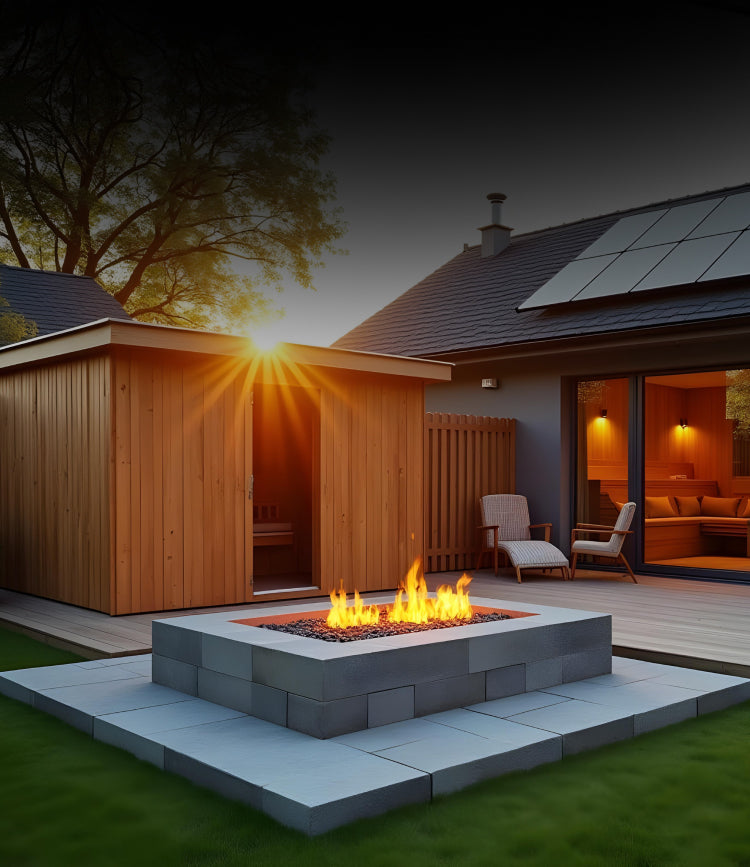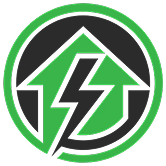Generators
Electric generators at Build The Power are machines that convert mechanical energy into electricity for powering homes, businesses, and industries. They're essential for keeping the lights on and equipment running when the power grid fails or isn't available and we have brought you some of the best ones out there.
Read more
Components of an Electric Generator
The main components of an electric generator include:
-
Stator: The stationary part containing the armature windings
-
Rotor: The rotating part containing the field windings or permanent magnets
-
Slip rings and brushes: Used in AC generators to transfer current from the rotor to the external circuit
-
Commutator: Used in DC generators to reverse current direction and convert AC to DC
-
AC generators (alternators): Produce AC power directly, with the frequency determined by the rotor's speed and number of poles. The output voltage is easily stepped up or down using transformers for efficient transmission.
-
DC generators (dynamos): Produce AC power initially, but use a commutator to convert it to DC. They're less common today due to the widespread use of AC power and the ability to rectify AC to DC electronically.
Browse our complete range of solar panels if you want to go green.
Types of Electric Generators
Electric generators come in various types, each with unique characteristics and applications. Let's explore some of the most common types of electric generators.
Synchronous Generators
Synchronous generators are the most widely used type in power plants. They have a fixed speed that's synchronized with the frequency of the power grid (50 or 60 Hz). The rotor's magnetic field is created by either permanent magnets or DC excitation. Examples include turbo-generators in thermal and nuclear power plants, and hydro-generators in hydroelectric dams.
Induction Generators
Induction generators, also called asynchronous generators, are based on the principle of electromagnetic induction. They're simple, rugged, and require no separate DC field excitation. Induction generators are commonly used in wind turbines, micro-hydro systems, and as backup generators. They must be excited by an external AC source or capacitors to start generating power.
Homopolar Generators
Homopolar generators produce DC current using a stationary magnetic field and a rotating disc or cylinder. They're capable of producing very high currents at low voltages. Homopolar generators are used in pulsed power applications, such as powering electromagnets, fusion reactors, and particle accelerators. However, they have low efficiencies compared to other types.
Linear Electric Generators
Linear electric generators produce power through the linear motion of a sliding magnet or coil, rather than rotational motion. They're used in applications where reciprocating motion is available, such as wave energy converters and free-piston Stirling engines. Linear generators are efficient and can directly harness mechanical motion without the need for complex gearing.
MHD Generators
Magnetohydrodynamic (MHD) generators produce electricity by moving a high-temperature, electrically conductive fluid (plasma) through a powerful magnetic field. They have no moving parts and can reach high efficiencies. MHD generators are used in experimental power plants and spacecraft propulsion. However, they require extremely high temperatures and strong magnetic fields, limiting their practical applications.
Applications of Electric Generators
Electric generators serve a wide range of applications, from providing backup power during outages to powering vehicles and portable devices. Here's an overview of some common uses for electric generators:
Standby and Backup Power
Standby generators automatically turn on during power outages to keep essential appliances and systems running. They're permanently installed outside homes or buildings and connected to the electrical system via a transfer switch. Hospitals, data centers, and other critical facilities rely on large standby generators to maintain operations during extended blackouts. Smaller standby units provide emergency power for homes, allowing refrigerators, sump pumps, and heating systems to continue operating.
Portable Power
Portable generators offer power on the go for outdoor events, camping trips, tailgating, and work sites without electrical access. Ranging from small, lightweight inverter models to larger, open-frame units, portable generators typically run on gasoline and include 120V outlets for powering tools, appliances, and electronics. Campers and RV enthusiasts use portable generators to power air conditioners, kitchen appliances, and entertainment systems while off-grid. Contractors rely on them for powering tools and equipment at remote job sites. You can also buy power inverters from us.
Vehicle Alternators
Alternators are compact AC generators that charge vehicle batteries and power onboard electrical systems. They're driven by the engine via a belt and pulley system, producing AC power which is converted to DC by a rectifier. Modern vehicles use efficient, compact alternators to handle the growing electrical demands of amenities like infotainment systems, electric power steering, and advanced driver assistance features. They maintain the battery's charge and ensure reliable operation of headlights, wipers, and other essentials. Browse batteries from our product collection.
Human-Powered Generators
Human-powered generators convert mechanical energy from human motion into electricity. They're useful for charging small devices during power outages or in off-grid settings. Hand-crank and pedal-powered models are common, allowing users to generate electricity by turning a crank or pedaling. Some gyms have exercise bikes equipped with generators to power the facility or charge devices. In developing regions, human-powered generators provide a means of charging phones and lights without relying on the grid.
Selecting the Right Generator
Choosing the right generator depends on your specific power needs and intended use. Consider the following factors to ensure you select a generator that meets your requirements:
Power Output and Capacity
Determine the wattage required to power your devices and appliances. Add up the starting and running wattages of each item you need to power simultaneously. Choose a generator with a power output that exceeds your total wattage requirements by at least 20% to accommodate peak demands and future needs. Keep in mind that larger generators typically have higher power capacities but also consume more fuel.
Fuel Type and Efficiency
Generators can run on various fuels, including gasoline, diesel, propane, and natural gas. Gasoline is readily available but has a shorter shelf life. Diesel generators are more fuel-efficient and durable but often noisier. Propane and natural gas burn cleaner and are safer to store but may require professional installation. Consider the fuel availability, storage requirements, and runtime when selecting a generator.
Noise Level
Generator noise levels vary depending on size, type, and features like mufflers or sound-dampening enclosures. Inverter generators are typically quieter than conventional models due to advanced technology and insulation. Consider the noise level if you'll be using the generator in residential areas, campgrounds, or noise-sensitive environments. Look for generators with noise ratings below 60 decibels for quiet operation.
Portability and Size
Portability is crucial if you plan to move your generator frequently. Smaller, lightweight inverter generators are ideal for camping, tailgating, or powering tools on job sites. Larger, wheeled generators offer more power but are less portable. Consider the generator's size and weight, as well as features like handles, wheels, and lift hooks for easy transport and storage. Ensure the generator fits in your intended storage space and can be easily maneuvered.
Have all your answers? Now you can browse through our generators collection with the right information in hand. See what suits your right and get your premium generator at a good price from Build The Power.
FAQs
What is an electric generator, and how does it work?
An electric generator is a device that converts mechanical energy into electrical energy through electromagnetic induction. It consists of a stator, rotor, slip rings, brushes, and commutator, and works by moving a conductor through a magnetic field to induce an electromotive force (EMF).
What are the different types of electric generators?
The main types of electric generators include synchronous generators, induction generators, homopolar generators, linear electric generators, and magnetohydrodynamic (MHD) generators. Each type has unique characteristics and applications, such as power plants, wind turbines, and wave energy converters.
What are the applications of electric generators?
Electric generators have diverse applications, including standby power for essential systems during outages, portable power for outdoor activities and remote job sites, vehicle alternators for charging batteries and powering electrical systems, and human-powered generators for sustainable power in off-grid settings or developing regions.
How do I select the right generator for my needs?
When selecting a generator, consider your power requirements, fuel preferences, and budget. Determine the wattage needed for your devices, ensure the generator's output exceeds your needs by at least 20%, and consider factors like fuel type, noise level, portability, and size based on your intended use.
What safety precautions should I take when using a generator?
Always operate generators in well-ventilated areas, avoid overloading the unit, and follow the manufacturer's guidelines for safe operation. Regularly maintain your generator, including oil changes, air filter cleaning, and fuel line inspections, to ensure longevity and reliable performance.
Filters
-
Power Generators
635 -
Inverters
120 -
Solar Panel
142 -
Batteries
266 -
Charge Controllers
169 -
Complete Solar Systems
116 -
Power Chair
0 -
Grills
1 -
Accessories
1187 -
Saunas
111 -
Fire Pits
959

Cummins
Cummins RS20AE 20kW Quiet Connect Series Generator (C20N6H) – Cold Weather Model (A071Z202)

Cummins
Cummins RS17A 17kW NG/LPV Generator (C17N6H) – Aluminum Enclosure, 120/240V, Cold Weather Model (A071Z401)

Cummins
Cummins RS17A 17kW Natural Gas & Propane Generator (C17N6H - A071Z394) – Warm Weather Model

Cummins
Cummins RS13A 13kW Natural Gas & Propane Generator (C13N6H - A071Z390) – Warm Weather Model

Cummins
Cummins RS13A 13kW NG/LPV Generator (C13N6H) – Aluminum Enclosure, 120/240V, Cold Weather Model (A071Z407)
Why Wait To Start Saving? Get Started With Build The Power Today.
- Save 20-50% by buying direct
- Browse and buy online – no sales meetings
- Real energy independence for your home

Top Solar and Generator Brands
Free U.S. Shipping
30-Day Returns
Expert Support Team






